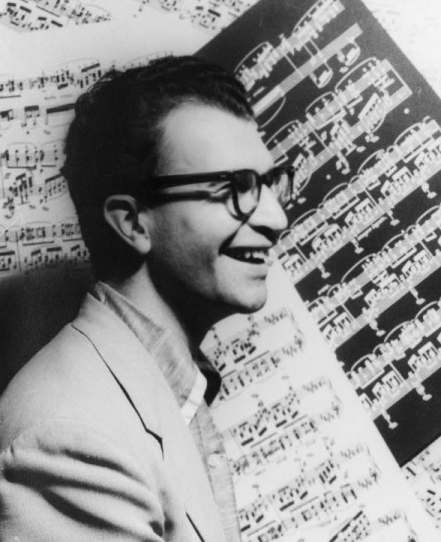Dave Brubeck...the final curtain falls
The other day I awoke to the news that pianist Dave Brubeck had passed away at age 91, one day short of his birthday, December 6. To say he was a jazz giant is only to illustrate the weakness of the written word, compared to his chosen language, music.
I first got turned onto him as a twenty-something who had grown bored with his dorm roon collection of rock and roll. KERA (local public radio station) at the time played classical during the day, and jazz at night. My first purchase was a double LP called The Dave Brubeck Quartet at Carnegie Hall. To say it knocked my socks off is to further illustrate the weakness of the written word.
He was born in the San Francisco Bay area. After graduating from the College of the Pacific (where his inability to read music created a bit of a scandal), he was drafted and served in George Patton's Third Army. While in the army he formed one of the army's first multi-racial bands. It was then that he first met his long-time collaborator, Paul Desmond.
After leaving the armed services, he formed and performed with a number of ensembles, but it was his quartet, formed in 1951, that he was best known for: Brubeck on piano, Desmond on tenor sax, Joe Morello on drums, and Eugene Wright on bass. This was the quartet that released the album "Time Out," which featured the ground-breaking original, "Take Five," arguably one of Brubeck's signature pieces.
Brubeck and the Quartet was known for playing in complex time signatures (Take 5 was written in 5/4, and that was one of the easy ones) and polytonal improvisation - which is a fancy way of saying they played in multiple keys simultaneously.
He disbanded the quartet in 1967, and turned his attention to composing longer pieces, many, such as The Light in the Wilderness, which dealt with spiritual themes. He eventually joined the Catholic church in 1980.
He received numerous accolades and honors, including the "Benjamin Franklin Award for Public Diplomacy," presented by Condollezza Rice in 2008, for offering an American "vision of hope, opportunity and freedom" through his music; honorary Doctor of Music degrees from the Berklee College of Music and George Washington University, to name but a few.
Family was important to him. Five of his six children went on to be musicians and joined him often in concert or on recordings. In keeping with the spirit of the holidays, here's a clip of him from 1996 performing "Santa Claus is Coming to Town," on the Today Show with sons Chris on electric bass and Dan on drums.
Enjoy!
I first got turned onto him as a twenty-something who had grown bored with his dorm roon collection of rock and roll. KERA (local public radio station) at the time played classical during the day, and jazz at night. My first purchase was a double LP called The Dave Brubeck Quartet at Carnegie Hall. To say it knocked my socks off is to further illustrate the weakness of the written word.
He was born in the San Francisco Bay area. After graduating from the College of the Pacific (where his inability to read music created a bit of a scandal), he was drafted and served in George Patton's Third Army. While in the army he formed one of the army's first multi-racial bands. It was then that he first met his long-time collaborator, Paul Desmond.
After leaving the armed services, he formed and performed with a number of ensembles, but it was his quartet, formed in 1951, that he was best known for: Brubeck on piano, Desmond on tenor sax, Joe Morello on drums, and Eugene Wright on bass. This was the quartet that released the album "Time Out," which featured the ground-breaking original, "Take Five," arguably one of Brubeck's signature pieces.
Brubeck and the Quartet was known for playing in complex time signatures (Take 5 was written in 5/4, and that was one of the easy ones) and polytonal improvisation - which is a fancy way of saying they played in multiple keys simultaneously.
He disbanded the quartet in 1967, and turned his attention to composing longer pieces, many, such as The Light in the Wilderness, which dealt with spiritual themes. He eventually joined the Catholic church in 1980.
He received numerous accolades and honors, including the "Benjamin Franklin Award for Public Diplomacy," presented by Condollezza Rice in 2008, for offering an American "vision of hope, opportunity and freedom" through his music; honorary Doctor of Music degrees from the Berklee College of Music and George Washington University, to name but a few.
Family was important to him. Five of his six children went on to be musicians and joined him often in concert or on recordings. In keeping with the spirit of the holidays, here's a clip of him from 1996 performing "Santa Claus is Coming to Town," on the Today Show with sons Chris on electric bass and Dan on drums.
Enjoy!

Comments